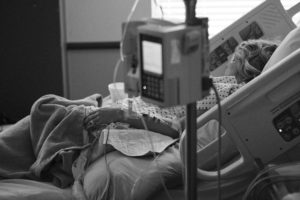Best Practices for Post-Surgery Recovery
Having surgery, whether major or minor, can be a huge disruption in your life. Depending on the injury or reason for the surgery,  you may not have use of your arm, leg, or any other part of your body that is necessary for normal everyday functioning. Therefore, the goal after surgery is always to recover quickly and with no complications.
you may not have use of your arm, leg, or any other part of your body that is necessary for normal everyday functioning. Therefore, the goal after surgery is always to recover quickly and with no complications.
After any kind of surgery, you’ll need to take extra care of yourself. Though sometimes it may seem tedious, post-surgery care is extremely important for a full recovery.
Here are some tips and best practices to recover successfully after your surgery.
Follow All the Doctor’s Orders
This may seem obvious, but there may be times during your recovery that you don’t want to do something that your doctor declared necessary for recovery. A simple instruction from your doctor may have complicated health consequences if not followed. Regardless of what you think about them, always follow all orders from your doctor after your surgery.
Keep Follow-Up Appointments
Again, in keeping with the doctor’s orders, it’s essential that you maintain the schedule for follow-up appointments, even if you think you don’t need to go. Your doctor wants to monitor the progress of your recovery, and he or she may be looking for things you don’t know to look for in the healing process. Your doctor may be able to spot an infection more easily than you can and help you get back to recovering as quickly as possible.
Care for Incision and Prevent Infection
If anything looks wrong to you at any point during your recovery, it’s important to contact your doctor immediately. Take care of your incision in the way that your doctor recommends, and always wash your hands before you touch or clean the wound.
Maintain a Healthy Lifestyle
After surgery, you may not be feeling your best. It’s likely that you won’t want to eat and drink properly, and you may not be able to exercise like you were prior to surgery. Have a conversation with your doctor about what types of movements are allowed or not allowed, and how you can help yourself stay physically strong as you heal.
It’s important to continue to eat healthy foods and drink plenty of water. If possible, take a short walk everyday to get your blood flowing and prevent other types of complications that may arise from a sedentary lifestyle. Before any new exercise or movement, consult with your doctor to get approval.
Ask for Help
When we are used to being independent and living on our own, sometimes it can be difficult to ask for help, even if we need it. After surgery, you may need assistance around the house doing tasks and chores, or even just someone to help you move around without great difficulty. Friends and family mean well, but often have busy lives of their own to tend to each day. You may look into the assistance of an in-home caregiver for a short period of time as you recover from your surgery.
At 24/7 Nursing Care, we offer in-home caregiving services for all types of post-surgery recovery. Whether you need someone part-time or around-the-clock, we can work with you to find the right caregiving fit. Contact us to learn more about how we can help you or a loved one recover after surgery. (855) 687 – 7344
References:
Whitlock, J., Fogoros, R. N., MSN, & FN. (n.d.). 10 Quick Tips: How to Recover Faster After Surgery. Retrieved from https://www.verywellhealth.com/post-surgery-recovery-tips-and-guide-3156833



